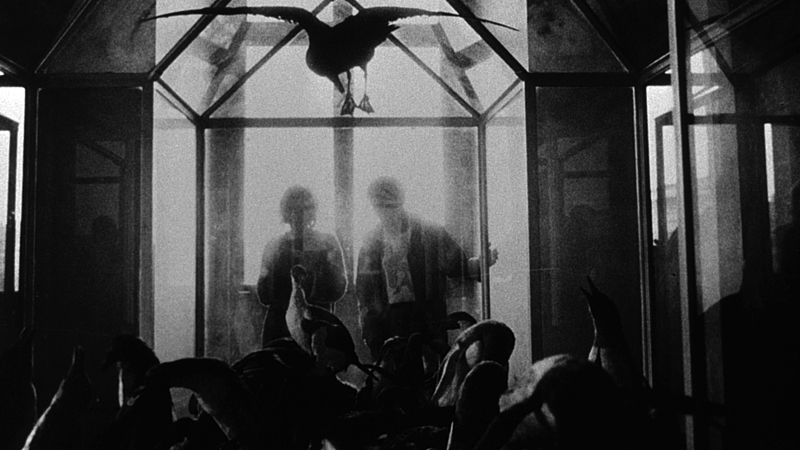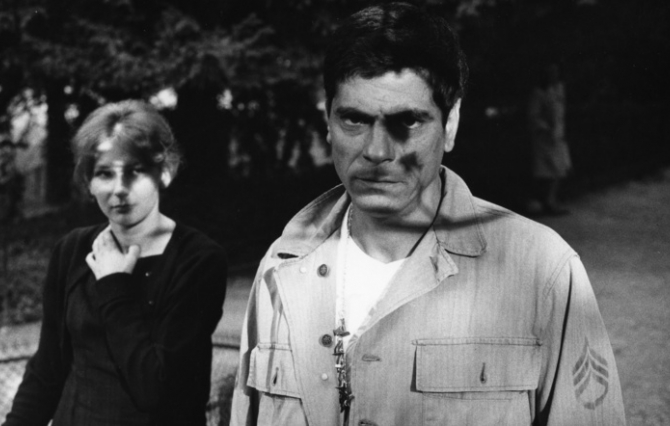Oh Glasgow, you are spoiling us... Yes, the Glasgow Film Festival just gets better and better. It wasn't enough to announce an opening gala of the Coen brothers’ Hail, Caesar!, and a closing gala of Charlie Kaufman's Anomalisa - they had to go and show off with a blistering full programme too. It’s basically impossible for us to detail everything that’s caught our eye without just directing you to the brochure, so we’ll take you through some of the things we’re particularly excited by.
Miles Ahead
Music is a big theme this year, as it always (rightly) is at the GFF. Blasted favourites Monorail Film Club host a screening of Danny Says, a ‘frank and hilarious’ documentary about the man (Danny Fields) who made the likes of Iggy Pop, Lou Reed and Patti Smith household names; the inimitable (and really quite brilliant) Ela Orleans performs a live soundtrack to the 1929 silent film Lucky Star at Mackintosh Queen's Cross; they’ve also bagged Don Cheadle’s labour of love, the long-awaited Miles Davis biopic Miles Ahead; over on the Southside, the Tramway (fresh from hosting a typically provocative and stimulating Turner Prize) hosts the exhibition This is Now: Film and Video after Punk (1978 - 85) for four days, an exploration of the filmmaking of artists in London’s post-punk scene, featuring remastered work by the likes of Grayson Perry and Cordelia Swann; and Aidan Moffat takes on ‘Scottish folk royalty’ in the hope of re-working traditional Scottish songs in Where You’re Meant To Be.
The Man Who Fell To Earth
Planned before his sad and untimely death (which we couldn’t even bring ourselves to write about, and still can’t, to be honest), David Bowie is a bit of a theme this year too – not only are GFF screening D.A. Pennebaker’s classic documentary Ziggy Stardust and the Spiders from Mars, they’re also putting on a very special screening of Nicolas Roeg's incredible (Bowie-starring) The Man Who Fell To Earth at no less a venue than the Glasgow Science Centre Planetarium.
No Home Movie
Cinematic heavyweights get a chance to occupy the screen themselves; the master of suspense gets more than a cameo facing off against Nouvelle Vague maestro François Truffaut in Kent Jones’ Hitchcock/Truffaut; Sergei Eisenstein finds himself in Mexico in Peter Greenaway’s exuberant Eisenstein in Guanajuato; the late Chantal Akerman’s relationship with her mother is the subject of her final film, the intimate video essay No Home Movie; and the one and only Laurie Anderson reflects on the deaths of her mother, husband Lou Reed and her dog in Heart Of A Dog.
Arabian Nights Vol. 3: The Enchanted One
Other new films glinting at us from the brochure are the marvellous Ben Wheatley's much anticipated adaptation of J.G. Ballard’s humorous dystopia High-Rise; Miguel Gomes’ ambitious Arabian Nights trilogy promises to be nothing less than spectacular; and Severin Fiala and Veronika Franz’s Goodnight Mommy looks to be an intelligently chilling family drama.
So there you have it. Get on it.
The Glasgow Film Festival runs from 17-28 February at various venues across the city. All images courtesy of the Glasgow Film Festival.















